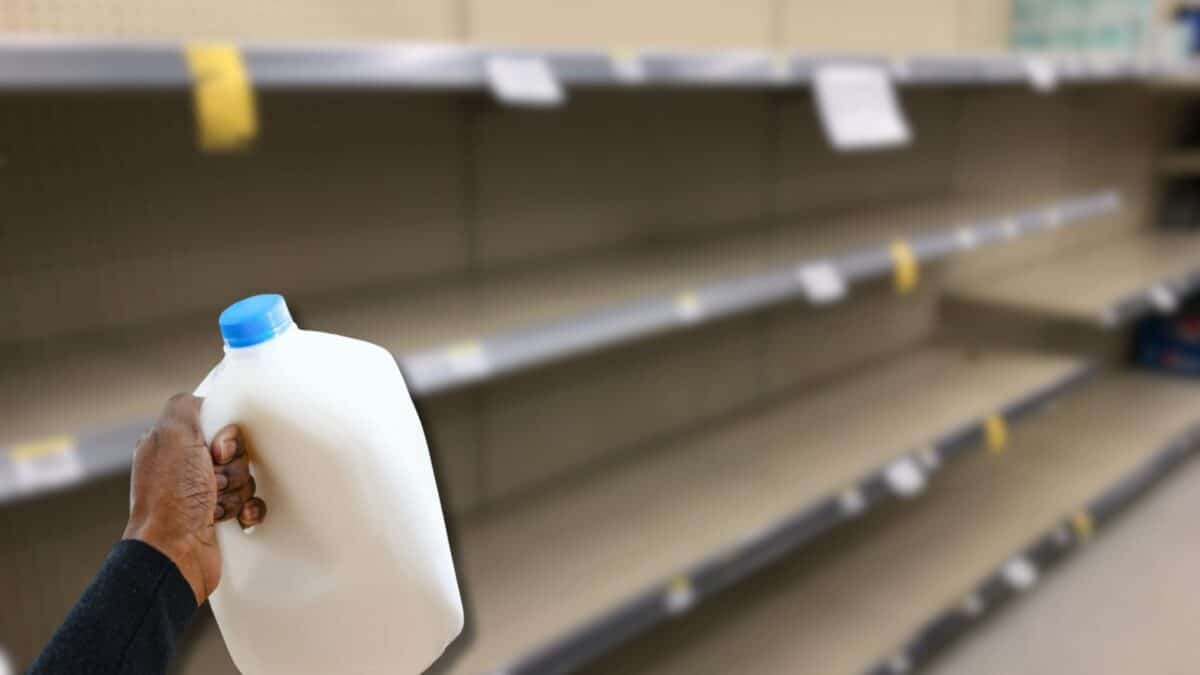Australian consumers may soon face a milk shortage or rising prices, as the effects of recent floods and ongoing drought conditions hit the country’s dairy sector. The warning comes after devastating flooding swept through northern New South Wales, causing widespread destruction to dairy farms and infrastructure.
According to industry sources, the damage includes the loss of entire herds, fencing, machinery, and other essential farming equipment, making it harder for farmers to resume normal operations.
Floodwaters from the Manning River, which reached record highs, washed livestock out to sea and destroyed large swathes of farmland. Conditions were described as “diabolic” by producers in the Belmore River region.
EastAusmilk CEO Eric Danzi warned that the full extent of the crisis may only become clear when consumers notice changes at the supermarket. “There is going to be a real shortage of milk and products,” he told 2GB radio. “How that plays through to consumers I don’t know.”
Widespread production Loss and National Impact
Danzi said the damage extends beyond the floods, noting that the same dairy regions were also hit by ex-Cyclone Alfred earlier in March. Combined with drought conditions in South Australia and Victoria, the result is a “massive reduction in milk production across Australia.”
Many farmers on the Mid North Coast are returning to properties where livestock have been lost and fields are submerged or stripped. Danzi estimates that around half of the 100 dairy farmers in the area are facing losses of at least $500,000, if not more.
The extent of the damage has prompted a visit from Prime Minister Anthony Albanese, who toured affected farms in Taree on Tuesday. Albanese was joined by Emergency Management Minister Kristy McBain, and met with local dairy farmer Milton Johnson to assess the on-ground conditions.
Authorities have confirmed that more than 5,000 properties were damaged in the flooding, with 794 homes rendered uninhabitable across the region.
Milk Shortage: Government Urges Farmers to Seek Support
Prime Minister Albanese stated that while flood victims in the Mid North Coast are bearing the immediate burden, the fallout will affect Australians nationwide through reduced milk supply and possible price increases. “Every Australian is affected, as well, by the fact that we’ve had a loss of dairy industries,” he said during the visit.
The government has acknowledged the long-term implications for the national dairy supply chain, particularly as infrastructure and livestock losses compound existing pressures.
NSW Farmers president Xavier Martin has called on producers not to face the crisis alone. “We know farmers did everything they could to prepare for this disaster, but the reality is these floods have left colossal damage and devastation in their wake,” Martin said.
He stressed that help is available and urged farmers to reach out for assistance, particularly as poor telecommunications connectivity in rural areas continues to hinder emergency response and coordination.









